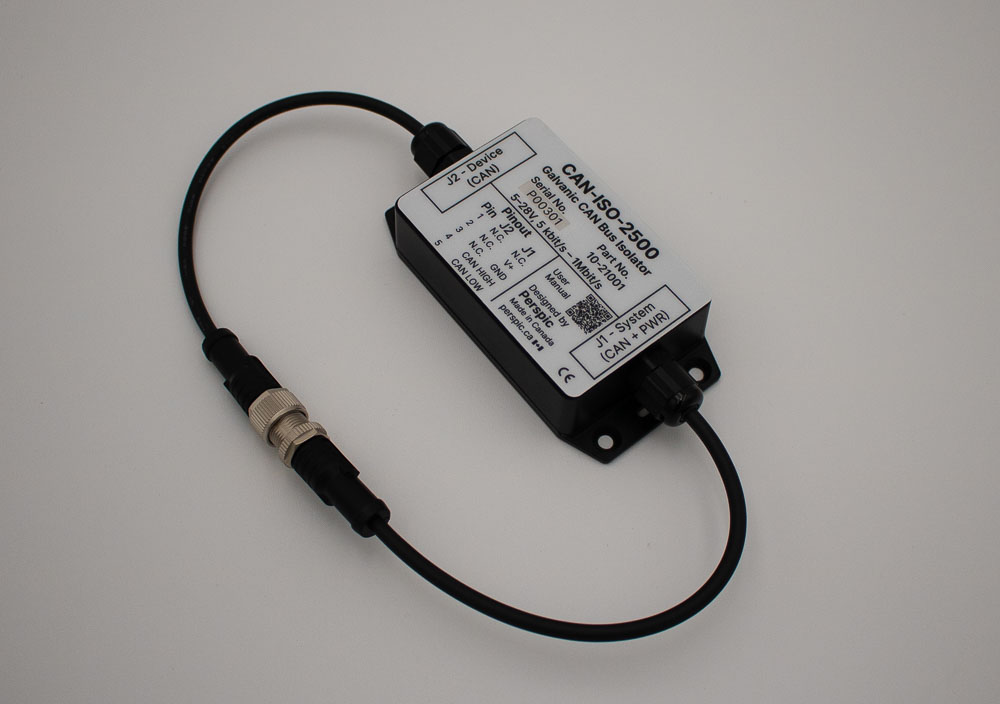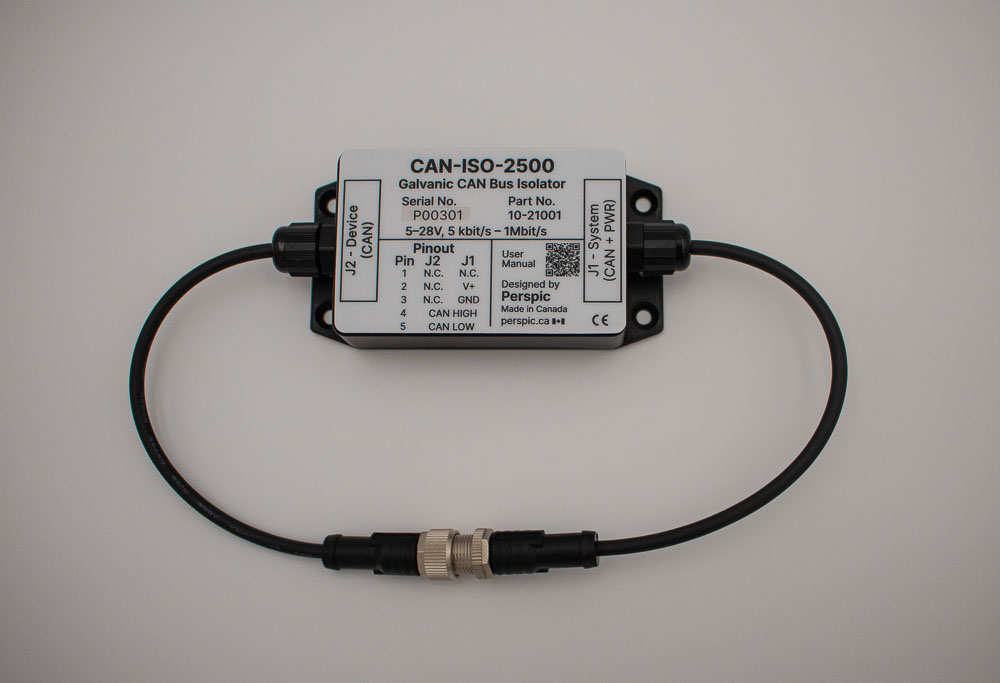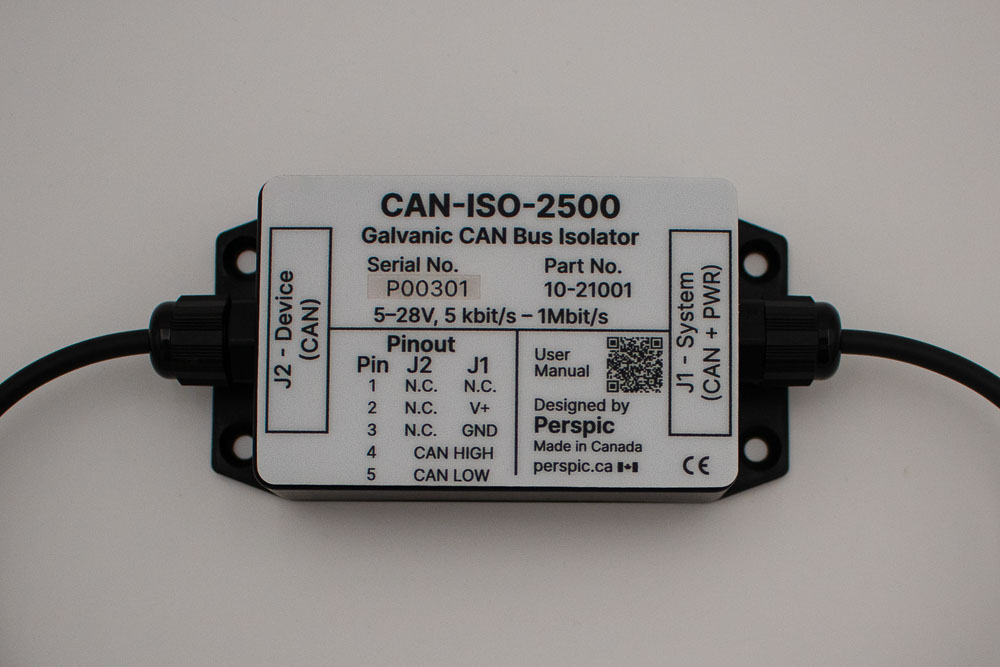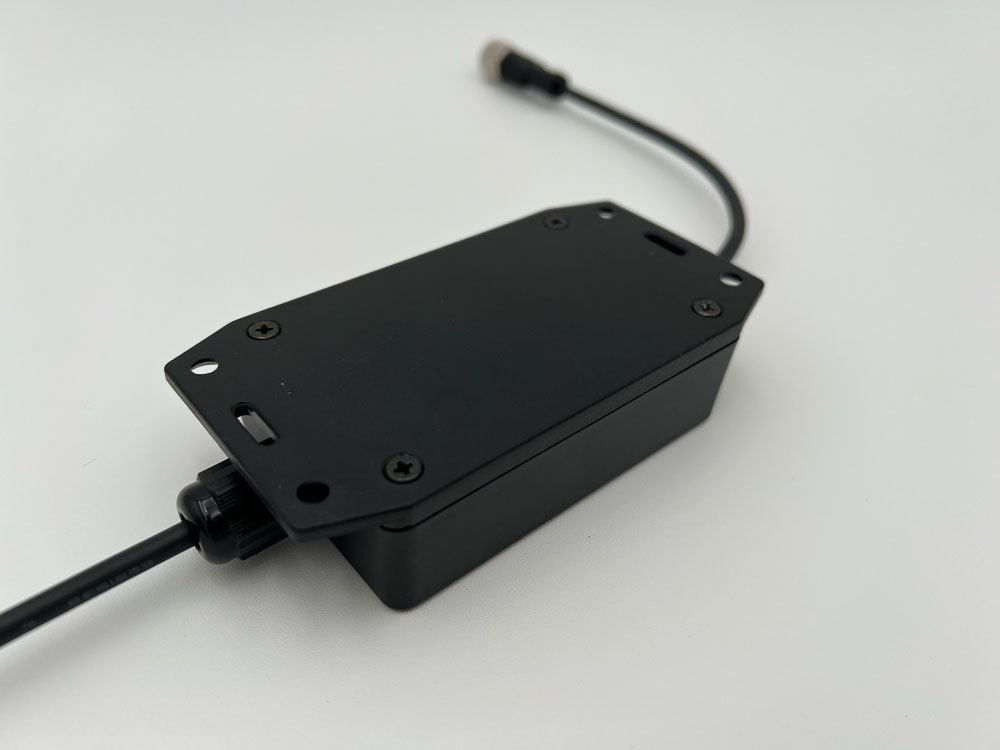Rugged Galvanic CAN Bus Isolator for Industrial and Automotive Applications
Protect your CAN Bus network with the CAN-ISO-2500, a durable and high-performance CAN Bus isolator and repeater designed for mission-critical applications. Whether you’re working with J1939, CANopen, or proprietary CAN systems, this module provides robust 2500 V galvanic isolation to eliminate ground loops, voltage transients, and EMI noise — ensuring reliable communication in even the harshest environments.
Engineered for industrial automation, off-highway equipment, mining vehicles, and automotive OEMs, the CAN-ISO-2500 is your solution for clean, protected data transmission.
Key Features
-
2500 V Galvanic Isolation between HV and LV sides
-
Supports CAN baud rates up to 1 Mbit/s (auto-detects speed)
-
Wide input voltage range: 5 to 28 V DC
-
Standard 120 Ohm termination resistor with optional cut traces
-
IP54 water-resistant, rugged enclosures
-
M12 5-pin connectors, Deutsch/Amphenol or unterminated options
-
Silent mode configuration for unidirectional data flow
-
ESD and reverse polarity protection
-
Operating temperature up to 105°C
Applications
-
Mixed-voltage CAN Bus isolation in vehicles and mobile equipment
-
Electrical noise protection in J1939 networks
-
Segment bridging and repeater use cases
-
Harsh industrial environments: mining, forestry, agriculture
-
Data acquisition and test equipment requiring isolated CAN ports
- Electrical isolation and signal regeneration (repeater mode) in distributed CAN networks
-
Use silent mode to isolate a device or network segment from transmitting onto the main CAN Bus while still receiving data (e.g., for monitoring or data logging).
- Segment bridging and CAN Bus topology extension
-
Mixed-voltage CAN isolation in J1939, CANopen, or proprietary networks
Why Use a CAN Isolator?
Many CAN Bus systems rely on a single power domain, but mixed-supply networks introduce risks such as ground loops, signal distortion, and even hardware damage. The CAN-ISO-2500 isolates power domains while allowing full-speed communication between segments — protecting your devices and improving signal integrity.
Galvanic isolation also prevents electrical faults from spreading across your entire CAN network, a must-have for applications where reliability and uptime are critical.
Frequently Asked Questions (FAQ)
Q: Can this isolator be used in J1939 networks?
A: Yes, the CAN-ISO-2500 fully supports J1939 protocol and other standard CAN implementations.
Q: What happens if my CAN devices are on different power supplies?
A:
Voltage differences between devices can cause communication errors or damage. The CAN-ISO-2500 prevents this by isolating power domains while preserving full-speed data transfer.
Q: How do I disable termination resistors?
A: Cut the solder jumpers as outlined in the user manual. You can re-enable by soldering them again.
Q: What’s the difference between this and an optoadapter?
A: A CAN Optoadapter (or CAN opto isolator) is typically a plug-on isolator designed for desktop or bench use. The CAN-ISO-2500 offers similar galvanic isolation, but with rugged IP-rated enclosures, wider voltage support, and field-ready connectors like M12, making it ideal for permanent installation in harsh environments.
Q: Is the device waterproof?
A: Yes — IP54 is standard, and IP68 is available for demanding environments.











